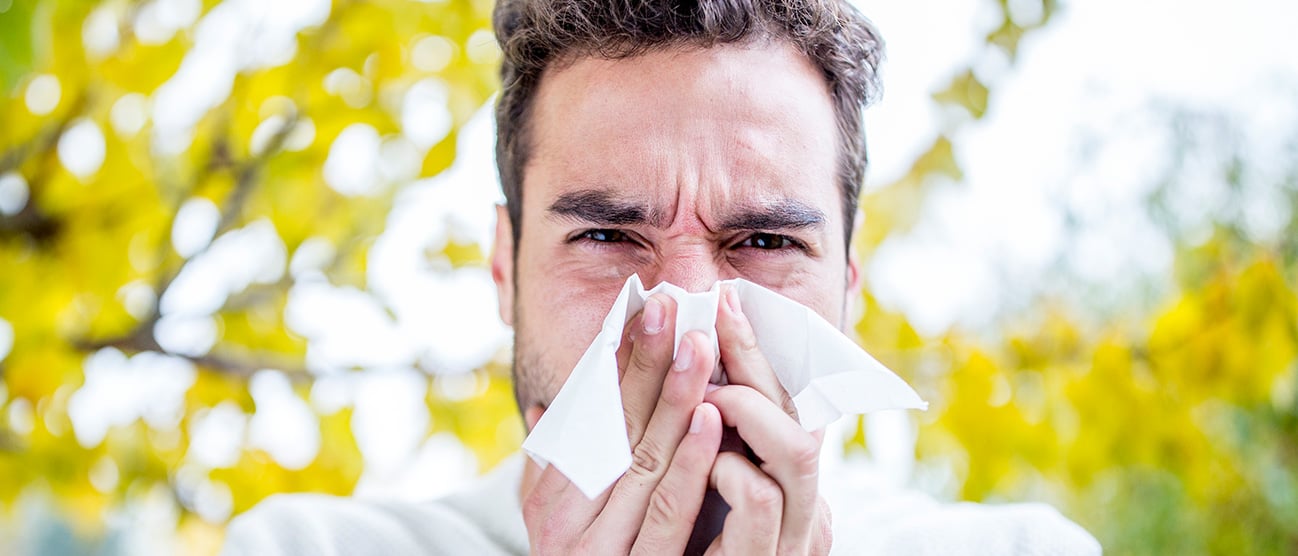What Causes Fall Allergies?
Ragweed Pollen
Ragweed pollen is one of the most common triggers of seasonal allergies in fall. About 75% of people who are allergic to spring plants are also affected by ragweed. Ragweed starts pollinating in late summer and can continue through September or October, depending on how warm it is. Even if ragweed is not prevalent in your area, its pollen can travel hundreds of miles through the air, triggering fall allergy symptoms.
Mold
Mold, another cause of fall allergies, doesn’t just grow in damp places inside the home, it also can grow outside in piles of wet leaves. Make sure to wipe your feet before going inside so that you don’t track mold or fall allergy carriers, such as leaves, into your home.
Dust Mites
Moist or humid places, such as furnaces and air filters, are common hiding spots for dust mites that circulate when your heater kicks on. Always insert a clean air filter before turning on your furnace at the beginning of the season to help mitigate indoor allergies through fall and winter.

Fall Allergy Symptoms
Fall allergy symptoms are often no different from other seasonal allergy symptoms. Itchy nose and eyes, watery eyes, runny nose, and sneezing can all be signs of fall allergies.

Fall Allergy Relief
Reducing Fall Allergens
Here are some tips to help manage your fall allergy symptoms:
Stay indoors. Keep doors and windows closed when pollen is at its peak from late morning to midday.
Check the pollen count. Look up local fall allergy reports or download the ZYRTEC® AllergyCast® app so you can see how pollen will affect you daily.
Plan for the weather. Weather affects allergies, so check the local weather forecast.
Keep the air clean. Vacuum often and run a HEPA air filter in your home to catch those fall allergens that might have made their way in.
Try ZYRTEC®
Talk to your doctor to determine if you’re a fall allergy sufferer and to discuss the best medicine for fall allergies. You also can try ZYRTEC® for relief from fall allergy symptoms. With allergy medicine for adults and children, ZYRTEC® works fast to provide tough allergy relief and stays strong day after day.

